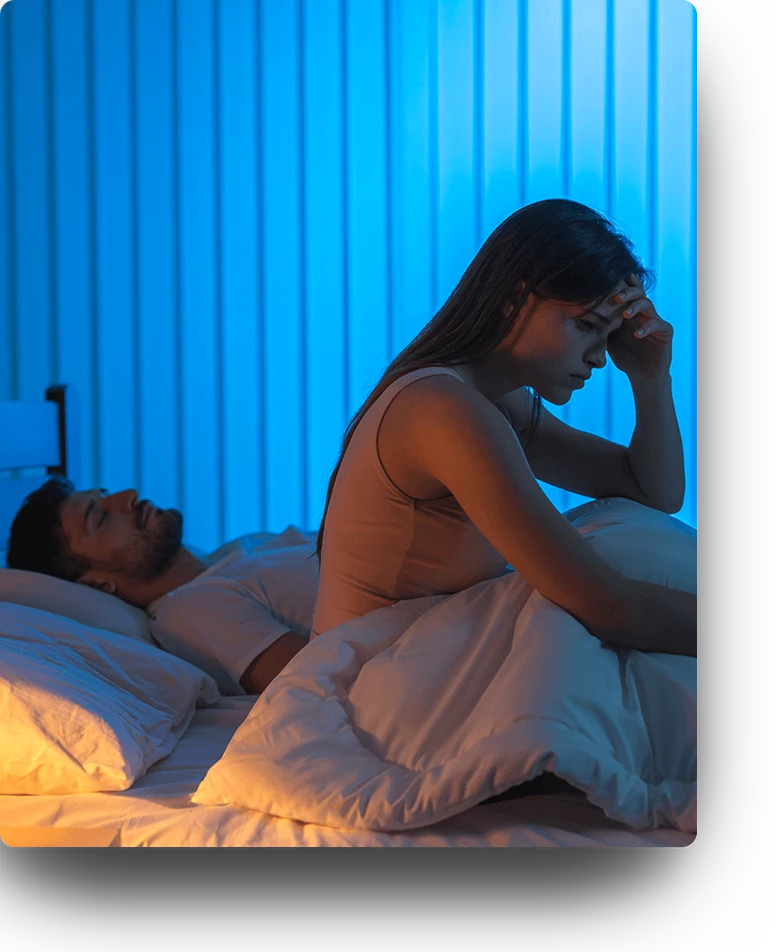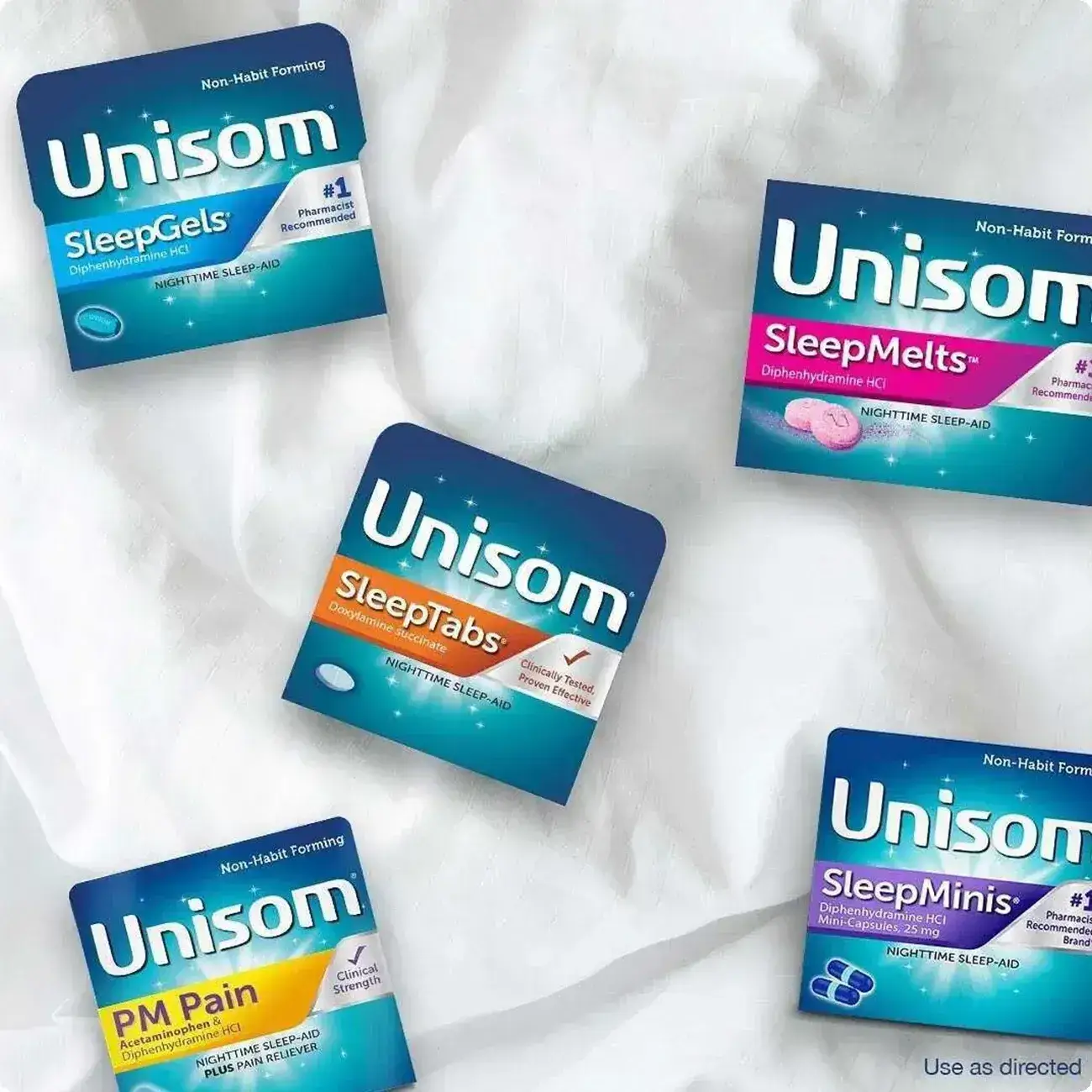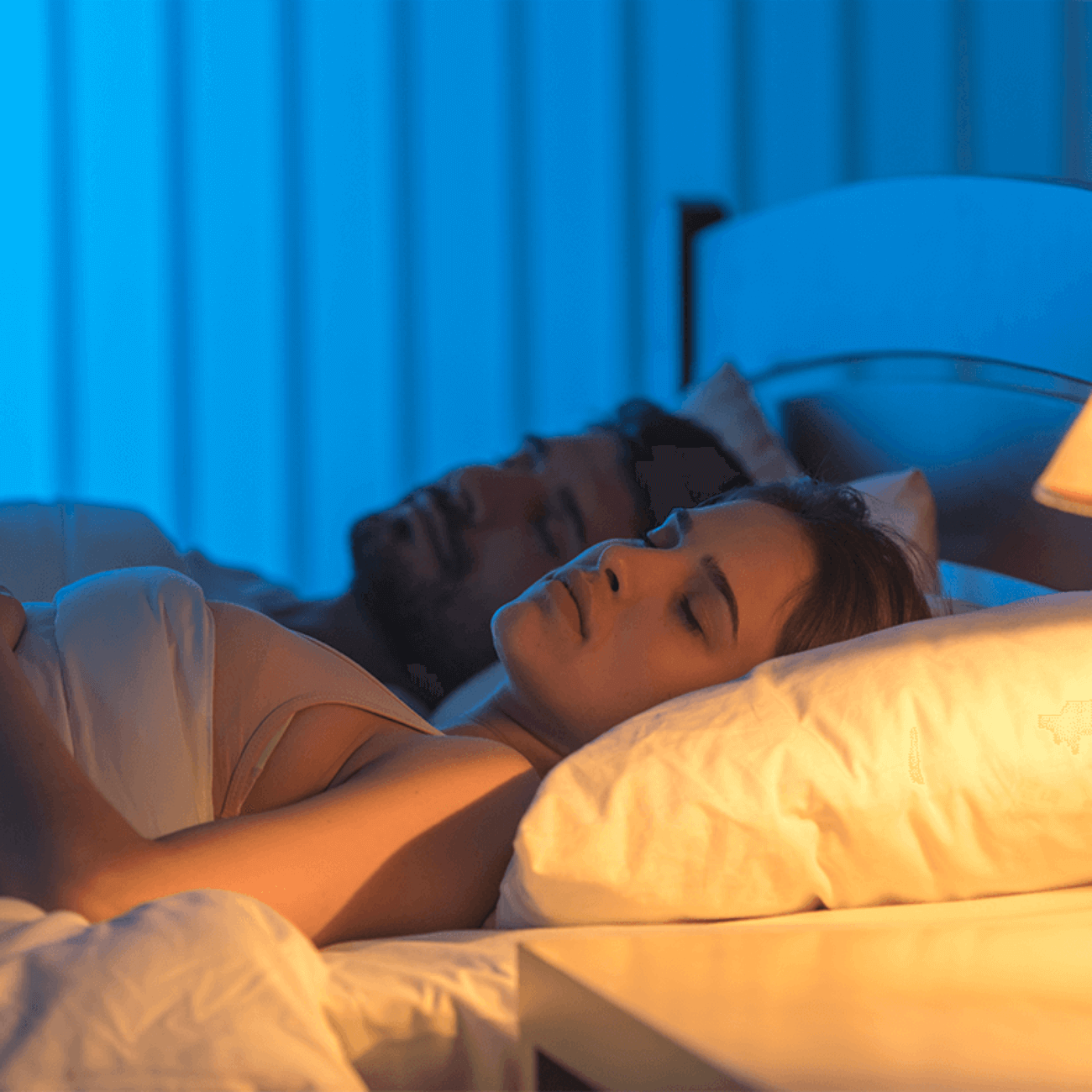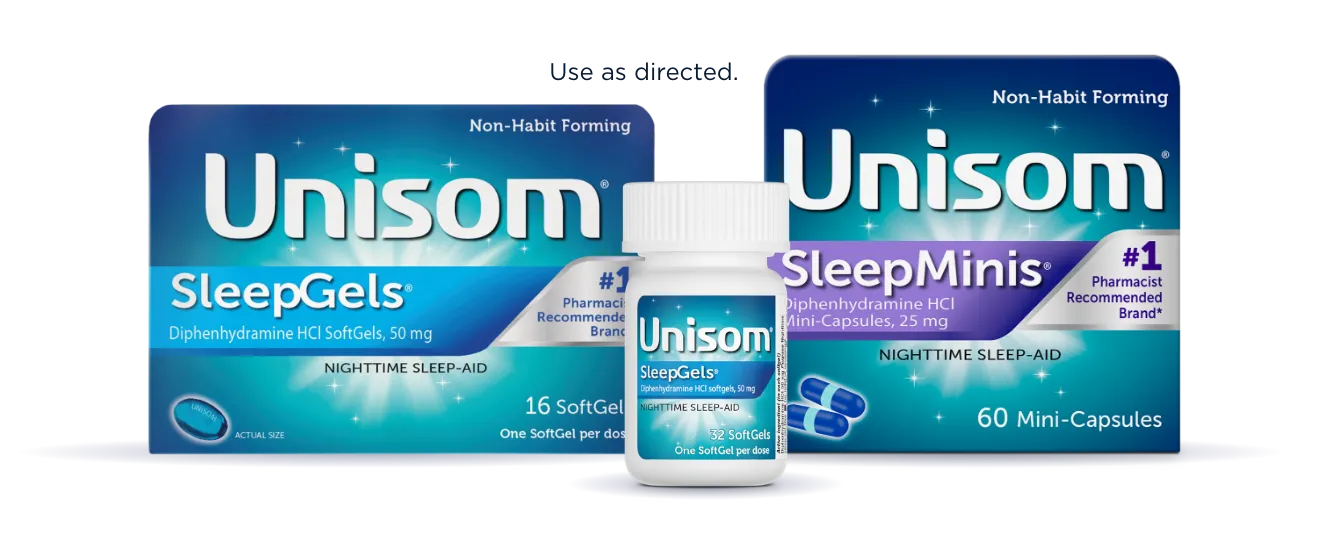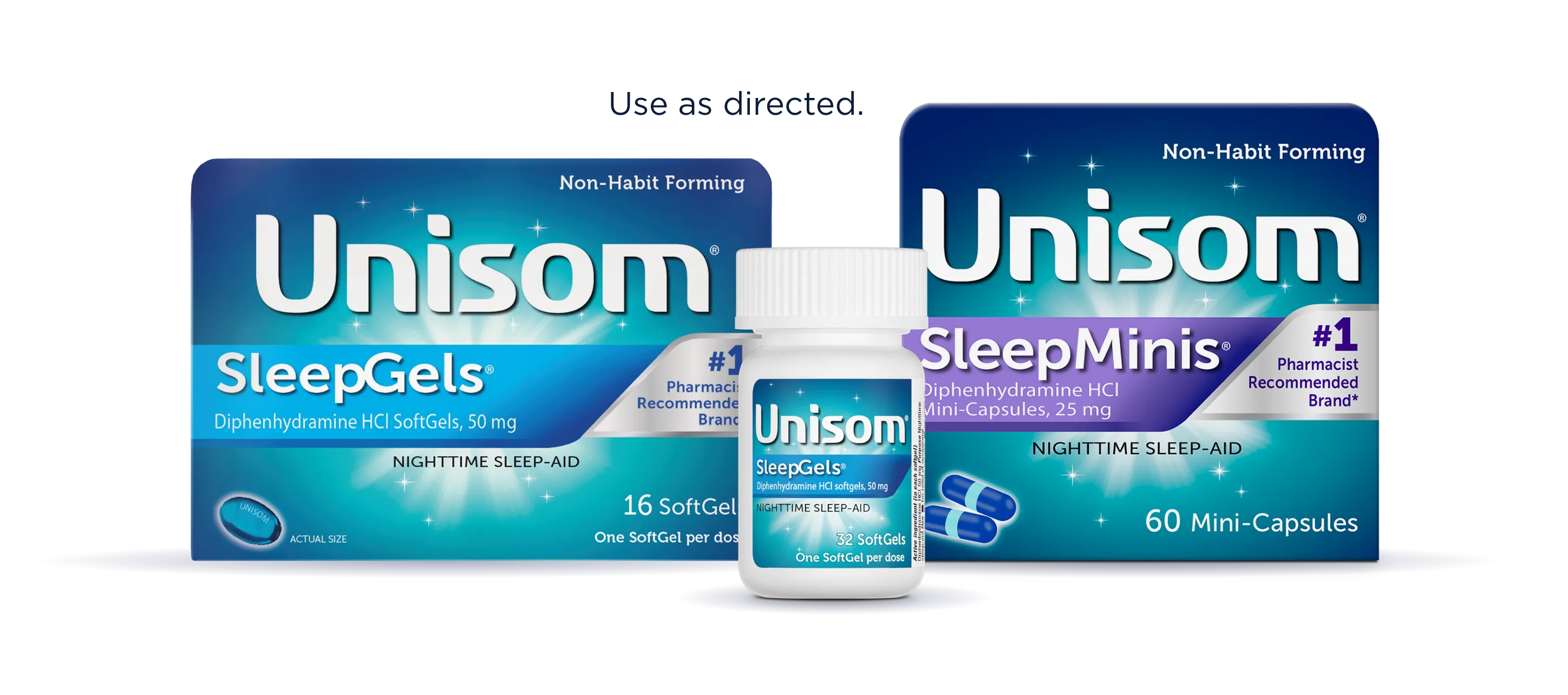Embark on a journey through the Unisom Daylight Saving Time Survey, where we unravel the complexities of sleep and relationships. The survey, targeted at couples with varying sleep habits, unveils that nearly half are caught in a web of envy and dissatisfaction, stemming from disparate sleep patterns. A staggering 72% observe their partners reaping the benefits of 7+ hours of sleep on weeknights, a stark contrast to the 45% who experience the same. This introduction sets the stage for an in-depth analysis of the survey’s top-line findings, offering insights into the challenges and aspirations of couples navigating the turbulent waters of sleep and intimacy.
Nearly half of couples living together feel envious or jealous of their partner because of their differing sleep behaviors.
-
72% of adults harboring negative feelings say their partner is getting 7 hours or more of sleep per weeknight, while only 45% say they are getting that much sleep.
-
Of adults harboring negative feelings towards their partner’s sleep habit, only 43% are satisfied with their current sleeping situation, and most (89%) want to improve their sleep quality.
-
When looking at couples experiencing negative feelings towards their partner’s sleep habit, more than half say they have different sleep schedules which has caused a tension/divide in a third of their relationships
-
The difference in sleep schedules leads nearly half of these couples to have feelings of frustration, irritation, a lack of intimacy and more than a third have a lack of emotional connection or even sleeping separately.
-
-
When told sleeping helps you think more clearly, have quicker reflexes, and focus better and can also strengthen your relationship, nearly half were interested in finding solutions that could help improve their sleep.
- About 2 in 3 adults who are harboring negative feelings towards their partner [and] are looking for new remedies to help them fall and stay asleep.
Findings Among All Couples
Majority of surveyed adults in relationships find it important to get 7 hours of sleep per night. Yet among most couples this is not a reality as one partner is getting more sleep than the other.
-
Two-thirds of adults say their partner is getting 7 hours or more of sleep per weeknight while only a little more than half (54%) say they are getting that much sleep.
-
Among those not sleeping at least 7 hours, the top reasons are stress, anxiety and aches and pains.
There is room for improvement when it comes to couples sleeping situations, as they are not satisfied.
-
Only half of adults in relationships are satisfied with their current sleeping situation.
-
Only 30% of adults in relationships rate their quality of sleep as ‘excellent’ or ‘great.’
-
Younger Generations (37% of Gen Z and 36% of Millennials) rate their quality of sleep significantly higher than older generations (27% for Gen X and Boomers, 17% for Silent).
-
-
Half of couples say they have trouble sleeping at night, especially females, and are concerned they do not get enough sleep on a weekly basis
Most couples are sleeping in the same bed every night, but nearly half say they have different sleep schedules or regimens.
-
1 out of 4 couples who have a different sleep schedule/regimen say it has caused a tension or divide in their relationship.
-
The difference in sleep schedule leads almost half of couples to have feelings of frustration.
-
A third of couples have had arguments about the sleep divide – or have been jealous that their partner can fall asleep so easily.
-
A quarter of adults in relationships prefer to sleep without their partner because they have better quality sleep.
When it comes to sleeping preferences, couples are bantering about a variety of things. Nearly half banter about the temperature of the room and who’s hogging the covers/blanket.
-
A third banter about the amount of space each person takes up in the bed.
-
Two fifths say their partner’s most annoying sleeping habit is their snoring.
Majority of couples (85%) are using a solution to help them fall asleep at night but are still having trouble getting quality sleep.
-
Over a third (37%) are watching TV to help them fall asleep while a fifth are reading (21%) or showering/bathing (23%).
-
17% are taking melatonin as a sleeping aid while a tenth is using an OTC sleeping aid.
More than half of couples surveyed are interesting in learning how they can improve their sleep.
|
†Sanofi Consumer Healthcare, the makers of Unisom, engaged the Frictionless Intelligence Team at Lippe Taylor and Innovate MR in September 2023 to uncover the differences couples have in their sleep regimens and the challenges this causes in their relationship (the “Sleep Survey”). The Sleep Survey was conducted among n=2,000 total respondents, all of whom are in relationships and living with their partners across the United States. Respondents, who were panelists from Innovate MR, were administered a blinded, web-based survey and were compensated a nominal amount for their participation. The Sleep Survey did not solicit respondents’ opinions about Unisom or any other Sanofi Consumer Healthcare product. The survey was available to panelists participating on a desktop or laptop computer, tablet, or mobile device. |
Rest assured
If you or your partner ever have trouble falling asleep or staying asleep, it’s good to know that there’s variety of effective sleep remedies available over the counter.
Choosing the right sleep-aid is simply a matter of doing a little research and talking to your doctor.
And you can count on us to get a better night's sleep. Unisom® is the #1 doctor-recommended OTC sleep-aid brand, with a range of options to help you fall asleep and wake up feeling refreshed.
Unisom® SleepGels® contain the histamine blocker diphenhydramine HCl. Blocking histamine production can help you fall asleep faster and stay asleep.
Unisom® SleepTabs® contain doxylamine succinate, which is a clinical-strength histamine blocker that works in a similar fashion to diphenhydramine. Unisom® SleepTabs® can help you fall asleep 33% faster and get a full night's sleep.
Find the Unisom® product that’s right for you.
Related articles
†These statements have not been evaluated by the Food and Drug Administration. This product is not intended to diagnose, treat, cure or prevent any disease.
